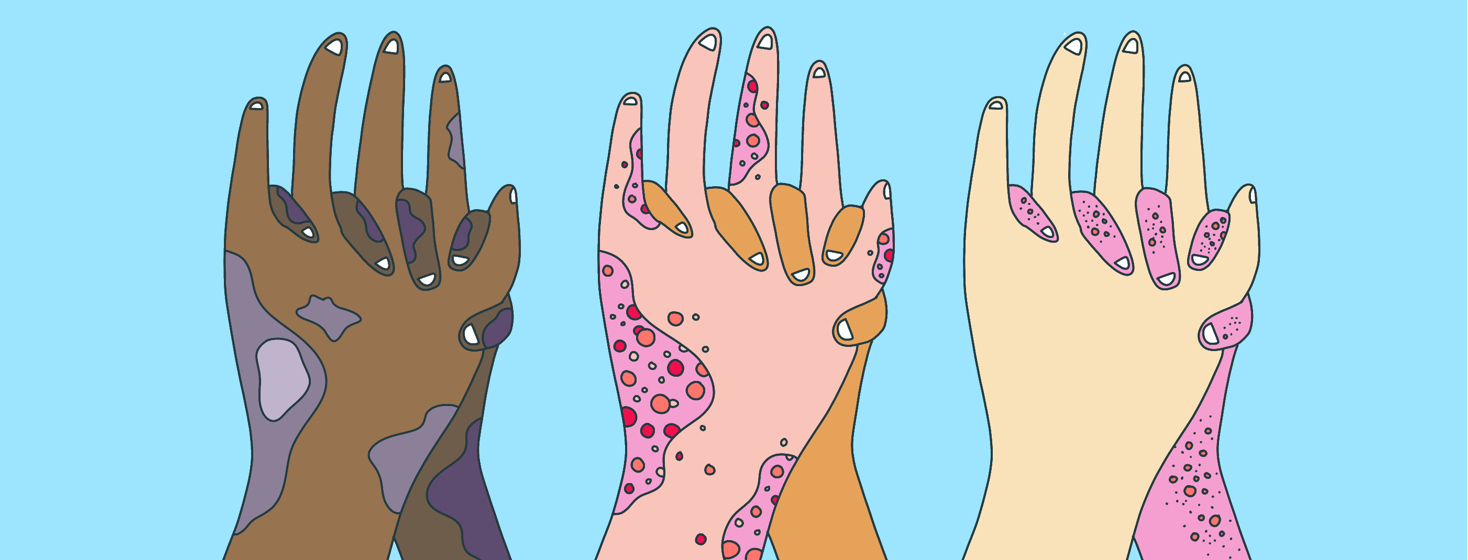How Can the Eczema Community Help Others Understand?
There are about 30 million people in the United States living with some form of eczema. That means there's an entire community out there who understands the day-to-day challenges of the skin condition. All of us at one point or another have heard some eye-roll worthy commentary, some advice we weren't looking for, or some hurtful remark about our skin and how we should be taking care of it. It's a condition that impacts so many and yet so few understand. So, the Editorial Team at AtopicDermatitis.net asked our advocate team what we can do as a collective community to help others understand and this is what they had to say:
Bust myths and misconceptions
Jeff: I think the best thing we can do as a community is to bust any myths or misconceptions about the disease. Many folks are under the impression that eczema is a minor condition. And while that can be true, there are also many of us out there that deal with much greater complications than a small rash. Additionally, it would be wonderful if we could also shed some light on the secondary issues that the disease presents, such as depression, loss of sleep, and related skin infections.
Work to normalize eczema
Ashley: Normalizing eczema and having open and honest conversations about it would definitely support people in better understanding us and this condition. The more we normalize it - share about it with our friends, family, even strangers - the more people will become aware of it when they see it. It won't be an "out of the norm" situation if they see someone with it.
Test their knowledge and educate them
Louise: Perhaps create a poll for non-eczema patients to complete to gauge their knowledge. Then have the poll link to the AD website under Health Union to learn more about it from real patients. Devote a section of the AtopicDermatitis.net site to those who do not have or know anyone with this condition. Perhaps they can complete a quiz or review some bullet points with some example photos. Mostly, if you have not walked a mile in our shoes, please try not to assume you know how we feel. Knowledge is power: ask us, instead of trying to diagnose or fix us as I have a medical team helping me.
Speak up to let others know what life with eczema is like
Raelle:Speak up when ignorance is said towards eczema. Share your stories of pain and strength that it takes to live with eczema. Make people understand and stop holding on to all of the weight on our own. Throw the weight right back to other people in terms that they can understand. At the very least it may spark compassion (not pity) to think before they speak or react to a very sensitive matter in people's lives. Eczema can be a burden but it also does not define who we are.
Tag a friend or share an article
Cora Lyn: I wish I had the answer to that. I think we're doing all we can. If they’ve come to our site, they probably have a basic knowledge of atopic dermatitis, but may need more help to realize it’s not “just a skin problem,” but a whole body and mind condition. Perhaps we need to put more focus on the fact that it’s a never-ending battle; that no matter what we do it’s probably going to come back. Also, education is only good if it reaches the desired audience. Could it be any easier for our members to tag a friend or share an article?
Help others understand eczema is a lifelong battle
Chad: I think that those who don't have eczema should understand that it is a skin disease and it does not go away. It is a lifelong battle.
Share our stories and pictures
Daisy: As a community we can bring about awareness by sharing our stories, showing our pictures, and being a voice for those who are afraid to speak. It's important to speak up and talk about your experiences. This helps people to learn and better understand what you are going through. Also, it helps to open a conversation about eczema and how people can be more considerate when speaking to an eczema warrior.
What would you say to someone who doesn't understand what it's like to live with eczema?

Join the conversation